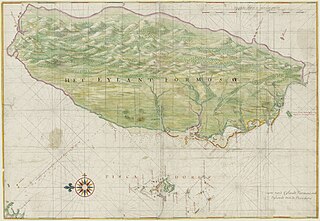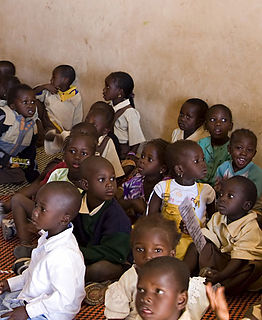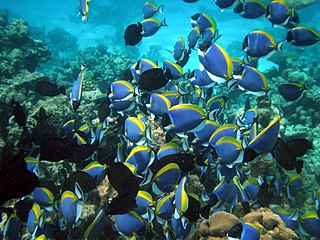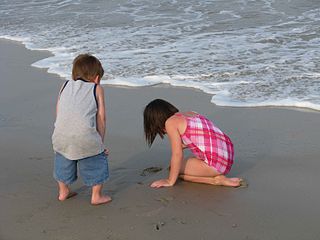
A primary school is a school in which children receive primary or elementary education from the age of about seven to twelve, coming after preschool, infant school and before secondary school.

A student is primarily a person enrolled in a school or other educational institution who attends classes in a course to attain the appropriate level of mastery of a subject under the guidance of an instructor and who devotes time outside class to do whatever activities the instructor assigns that are necessary either for class preparation or to submit evidence of progress towards that mastery. In the broader sense, a student is anyone who applies themselves to the intensive intellectual engagement with some matter necessary to master it as part of some practical affair in which such mastery is basic or decisive.
An alternative school is an educational establishment with a curriculum and methods that are nontraditional. Such schools offer a wide range of philosophies and teaching methods; some have strong political, scholarly, or philosophical orientations, while others are more ad hoc assemblies of teachers and students dissatisfied with some aspect of mainstream or traditional education.
State schools are generally primary or secondary schools mandated for or offered to all children without charge, funded in whole or in part by taxation. These schools are generally inclusive (non-selective) in admitting all students within the geographical area that they serve.
Tenth grade, sophomore year, or grade 10 is the tenth year of school post-kindergarten or the tenth year after the first introductory year upon entering compulsory schooling. In many parts of the world, the students are 15–16 years of age, depending on when their birthday occurs. The variants of 10th grade in various nations are described below.

Single-sex education, also known as single-gender education and gender-isolated education, is the practice of conducting education with male and female students attending separate classes, perhaps in separate buildings or schools. The practice was common before the 20th century, particularly in secondary and higher education. Single-sex education in many cultures is advocated on the basis of tradition as well as religion, and is practiced in many parts of the world. Recently, there has been a surge of interest and establishment of single-sex schools due to educational research. Single-sex education is practiced in many Muslim majority countries; while in the West it is most popular in Chile, Israel, South Korea, and English-speaking countries such as Singapore, Ireland, the United Kingdom, Hong Kong, New Zealand, and Australia. In the Western world, single sex education is primarily associated with the private sector, with the public (state) sector being overwhelmingly mixed sex; while in the Muslim world the situation is the opposite: public schools are usually single sex, while many private schools are mixed sex. Motivations for single sex education range from religious ideas of sex segregation to beliefs that the sexes learn and behave differently, and, as such, they thrive in a single sex environment. In the 19th century, in Western countries, single sex girls' finishing schools, and women's colleges offered women a chance of education at a time when they were denied access to mainstream educational institutions. The former were especially common in Switzerland, the latter in the US and the UK, which were pioneers in women's education.
Compulsory education refers to a period of education that is required of all people and is imposed by government. Depending on the country, this education may take place at a registered school (schooling) or at home (homeschooling). "Compulsory education differs from compulsory attendance, which means that parents are obliged to send their children to a certain school. Compulsory education involves both the duty imposed upon parents by law to see that their children receive instruction, and the prerogative of every child to be educated."
The Secondary School Leaving Certificate is a certification obtained by a student on successful completion of an examination at the end of study at the secondary schooling level in India. The SSLC is obtained on passing the grade 10 public examination commonly referred to as 'class 10 board examinations' in India. SSLC is a common eligibility examination popular in international markets many states in India, especially Kerala, Karnataka, and Tamil Nadu.
The Higher Secondary Certificate, also known as HSC or Intermediate or +2 examination, is a public examination taken by students of Intermediate college in Bangladesh, Pakistan and in the states of Gujarat,Tamil Nadu,Kerala, Telangana, Punjab, Maharashtra, West Bengal and Goa in India. In India the examination structure differs from board to board. But in most of the boards, they are subjective examinations. HSC is an equivalent to GCE A Level in England and 3rd and 4th year of high Schools in United States
The following boards of education are present in India:
- Andhra Pradesh Board of Secondary Education
- Andhra Pradesh Board of Intermediate Education
- Andhra Pradesh Open School Society
- Board of Higher Secondary Education Delhi
- Assam Higher Secondary Education Council
- Assam sanskrit board
- Assam State Open School
- Bihar Board of Open Schooling and Examination
- Bihar Sanskrit Shiksha Board
- Bihar School Examination Board
- Central Board of Secondary Education, CBSE
- Uchchatar Madhyamik Shiksha Parishad Under MSMED Act 2006 Koshambi
- Chhattisgarh Board of Secondary Education
- Council for the Indian School Certificate Examinations, ICSE / ISC
- Council Of Secondary Education Mohali
- Goa Board of Secondary & Higher Secondary Education
- Grameen Mukt vidhyalayi shiksha sansthan(GMVSS)
- Gujarat Secondary Education Board
- Haryana Board of School Education
- Himachal Pradesh Board of School Education
- Himachal Pradesh State Open School
- Jammu and Kashmir State Board of School Education
- Jammu and Kashmir State Open School
- Jharkhand Academic Council
- Karnataka Secondary Education Examination Board
- Kerala Higher Secondary Examination Board
- Kerala State Open School
- Board of Secondary Education, Madhya Pradesh
- Madhya Pradesh State Open School
- Maharashtra State Board of Secondary and Higher Secondary Education
- Meghalaya Board of School Education
- Mizoram Board of School Education
- Nagaland Board of School Education
- National Institute of Open Schooling
- Odisha Board of Secondary Education
- Odisha Council of Higher Secondary Education
- Punjab School Education Board
- Board of Secondary Education, Rajasthan
- Rajasthan State Open School
- Tamil Nadu Board of Secondary Education
- Telangana Board of Intermediate Education
- Telangana Board of Secondary Education
- Tripura Board of Secondary Education
- Board of High School and Intermediate Education Uttar Pradesh
- Uttarakhand Board of School Education
- West Bengal Board of Madrasah Education
- West Bengal Board of Primary Education
- West Bengal Board of Secondary Education
- West Bengal Council of Higher Secondary Education
- West Bengal Council of Rabindra Open Schooling

The recorded history of education in Taiwan can be traced back to the Dutch colonial period.

The Constitution mandates free and compulsory primary education in the Gambia, but a lack of resources and education infrastructure has made implementation difficult. In 1995, the gross primary enrollment rate was 77.1 percent and the net primary enrollment rate was 64.7 percent. School fees long prevented many children from attending school, but in February 1998 the president of the Gambia ordered the termination of fees for the first six years of schooling. Girls make up about 40 percent of primary school students, though the figure is much lower in rural areas where cultural factors and poverty prevent parents from sending girls to school. Approximately 20 percent of school-age children attend Koranic schools, which usually have a restricted curriculum.
Education in Slovenia from primary to secondary schooling is regulated by the National Education Institute of the Republic of Slovenia (ZRSŠ), whose scope includes education programmes, delivery and development.
Education economics or the economics of education is the study of economic issues relating to education, including the demand for education, the financing and provision of education, and the comparative efficiency of various educational programs and policies. From early works on the relationship between schooling and labor market outcomes for individuals, the field of the economics of education has grown rapidly to cover virtually all areas with linkages to education.

The United Nations publishes a Human Development Index every year, which consists of the Education index, GDP Index and Life Expectancy Index. These three components measure the educational attainment, GDP per capita and life expectancy respectively.

Homeschooling is legal in many countries. Countries with the most prevalent home education movements include Australia, Canada, New Zealand, the United Kingdom, and the United States. Some countries have highly regulated home education programs as an extension of the compulsory school system; others, such as Germany, have outlawed it entirely. In other countries, while not restricted by law, homeschooling is not socially acceptable or considered undesirable and is virtually non-existent.

The National Institute of Open Schooling (NIOS), formerly National Open School, is the board of education under the Union Government of India. It was established by the Ministry of Human Resource Development of the Government of India in 1989 to provide education to remote areas under the motive to increase literacy and aimed forward for flexible learning. The NIOS is a national board that administers examinations for Secondary and Senior Secondary examinations of open schools similar to the CBSE and the CISCE to increase literacy and provide education to rural and urban areas. It also offers vocational courses after the high school. Despite being established for distance education, NIOS provides a formal and regular secondary and Senior Secondary program equivalent to CBSE.










